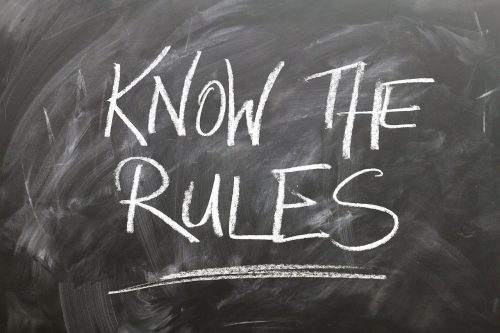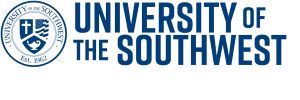Library Policies
You will be charged the replacement cost of the item plus a non-refundable processing fee. At Scarborough Memorial Library the fee is $10.00. Overdue fines accumulate until the day the item is returned or reported lost. Before a student may register for a subsequent semester, or obtain a transcript, all overdue materials must be returned to the Library and all fines and charges paid.
Photocopier available in the Library, located behind the front desk. A Library Staff member will be able to assist students in completing their photocopies. Interlibrary Loans and Article Photocopy Requests Materials not owned by the Library may be obtained through Interlibrary Loan (ILL) services by contacting a Library Staff member. Policies concerning these materials are set by the lending library. Please return or renew books prior to the due date.
The University of the Southwest provides numerous information technology resources for use by the university’s students, faculty, and staff. Information technology includes, but is not limited to, all university computing equipment, software, systems, and networks. These resources are provided to support the university’s mission and institutional goals. The use of these systems is a privilege and all users are expected to act responsibly and to follow the university’s policies governing the use of these resources.
Scarborough Memorial Library requires that each of its users abide by and agree to the following guidelines:
Respect security requirements for computer accounts. A computer or electronic mail (e-mail) account assigned to an individual, including student accounts, must not be used by others. Faculty, students, and staff are individually responsible for the proper use of their accounts, including password protection and the appropriate use of Internet resources. Making your password or another person’s password or access code available to others or otherwise attempting to evade, disable or “crack” password or other security provisions, or assisting others in doing so, threatens the work, privacy, and well-being of many others and is a serious violation of university policies. Also, faculty, students, and staff are responsible for choosing an appropriate password that is difficult for others to guess. If an individual suspects their password has been compromised, they should change the password immediately.
Respect copyright laws. Computer software use must conform to copyright laws and licensing agreements. Software is protected by copyright law whether a copyright notice is explicitly stated in the software or its documentation. Software licensed by the university must only be used in accordance with the applicable license. It is illegal to make duplicate copies of software products unless authorized to do so by its author or publisher. Computer users have no right to give or to receive duplicates of software without authorization or to install duplicated software onto university computing equipment.
Respect the rights of others using the system. Computer users shall not use the university’s information technology resources to participate in activities that are harassing in nature or prohibited by law. Sending messages, information, or images that are threatening, harassing, or discriminatory in nature is in violation of university policies and may be in violation of the law. Displaying potentially offensive material in Scarborough Memorial Library or other campus location is not allowed. Users are absolutely prohibited from utilizing systems to create, access, store, or disseminate materials that may be sexually or racially offensive, or otherwise insulting or derogatory to persons of a certain religious or ethnic group, or persons having disabilities.
Respect electronic mail guidelines. In support of the university’s mission, the university encourages the use of its electronic mail services to share information, to improve communication, and to exchange ideas. Any electronic mail address or account associated with the university is the property of the university. Those who use the university’s electronic mail services are expected to adhere to state and federal laws, the policies and procedures of the university, and should follow normal standards of professional and personal courtesy and conduct. Electronic communication under a false name or designation is prohibited. Sending anonymous communications does not disassociate senders from assuming responsibility for their actions.
Electronic mail services should not be used in ways that strain the university’s computing resources or interfere with others’ use of the electronic mail system. Prohibitive uses include, but are not limited to, sending or forwarding chain letters, exploiting list servers by amplifying widespread distribution of electronic mail, and sending the same electronic mail message repeatedly.
Confidentiality of electronic mail cannot be assured. The system administrator, technical managers, or other persons may need to view the contents of computer accounts and electronic mail to perform maintenance or to diagnose and correct problems. When performing maintenance, the university will make reasonable attempts to ensure the privacy of computer accounts and electronic mail, but cannot guarantee total privacy of the accounts. The user, however, acknowledges and consents that the university may monitor e-mail communications and Internet usage in order to insure compliance with this agreement. If policy violations are discovered, they will be reported immediately and appropriate action will be taken.
Respect the operational guidelines governing the use of the information technology facilities. Administrators responsible for computer systems may establish more detailed guidelines governing the use of the university’s computing equipment and facilities. These guidelines cover such issues as allowable connect time, disk space allocations, handling of irretrievable mail, responsibility for account approval, and other items related to administering the systems. Downloading of software onto any computing equipment owned or operated by the University of the Southwest without prior written approval is not permitted. During peak utilization times, computer users engaged in activities which are not directly related to the business of the University of the Southwest may be asked to relinquish their access to the system. Computer users are expected to abide by these rules and use the university’s computing resources in a responsible and professional manner.
The university provides information technology resources for users to engage in activities that support the work of the institution. Use of the university’s resources for commercial reasons, fundraising, political campaigns, or illegal purposes is not acceptable. Non-authorized solicitations on behalf of individuals, groups, or organizations are prohibited.
All users of computing systems of the University of the Southwest must read, understand, and comply with the policies outlined in this document. By using any of the university’s information technology resources, users agree to comply with these policies.

